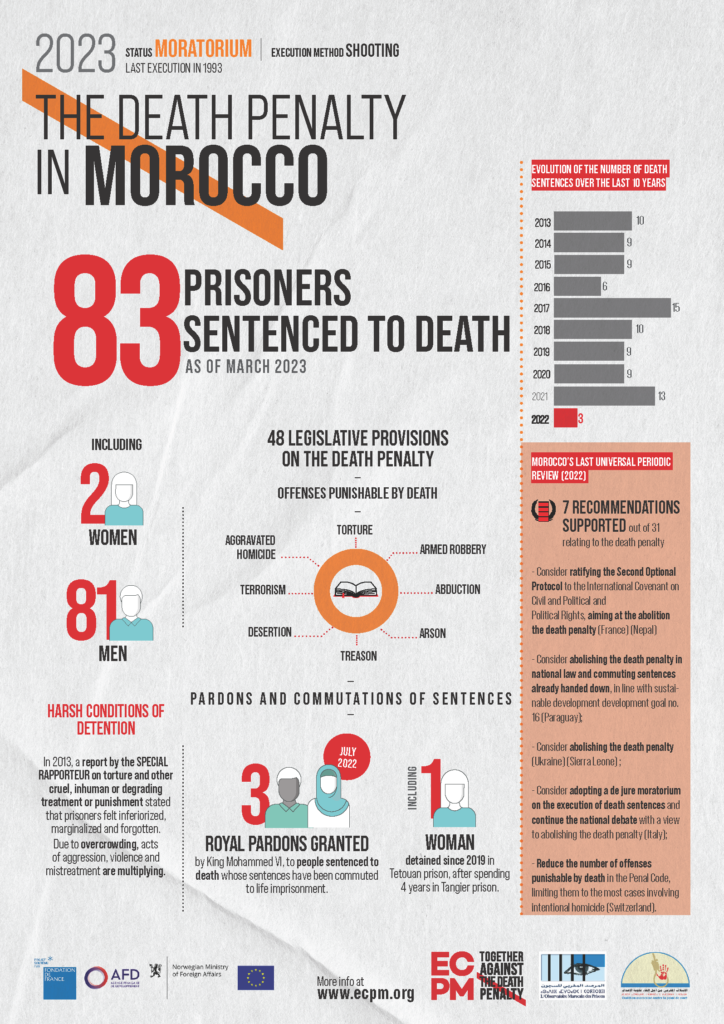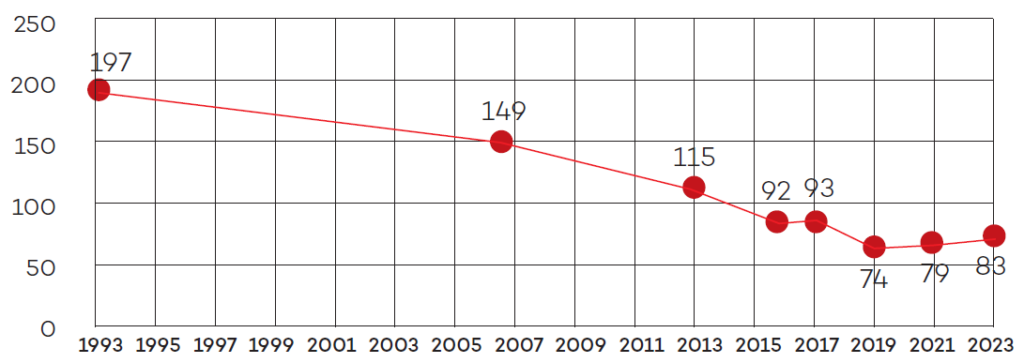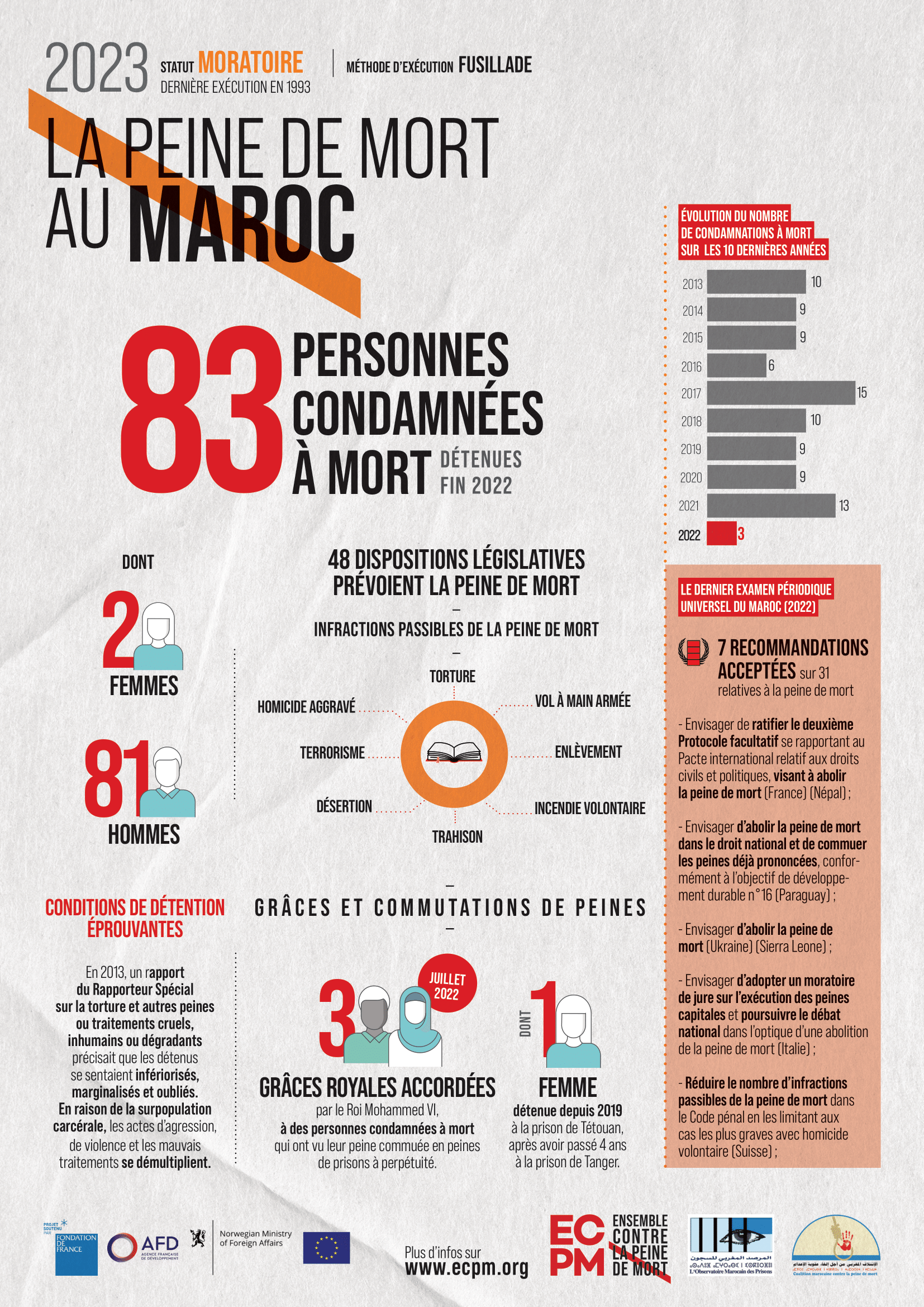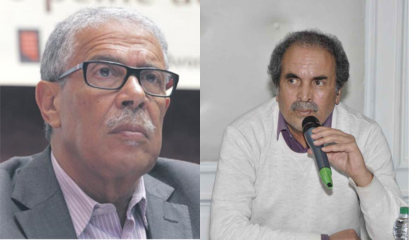

Even though Morocco hasn’t carried out any executions in more than three decades, the death penalty still means death in the country. It also signifies profound distress for the condemned individuals and their families, who are often broken up and stigmatized, and sometimes need to leave their neighbourhoods to avoid rejection from their community due to the death sentence of their loved one. Carole Berrih, author of the report, question why so much suffering is created and maintained for a penalty that is no longer carried out.
« Numerous actors as diverse as ministers, parliamentarians, lawyers, and successive presidents of the National Human Rights Council have demonstrated that the death penalty is contrary to the right to life, which is guaranteed in the Moroccan constitution. It is therefore evident that the death penalty must be abolished in Morocco. »
Mr. Abderrahim Jamaï, coordinator of the Moroccan Coalition Against the Death Penalty.
« A de facto moratorium is a fragile and reversible situation overnight. History offers numerous instances illustrating how the death penalty can swiftly return to practice once a moratorium ends and executions resume. Recently, the DRC maintained a de facto moratorium on executions for 23 years. Now, it is taking steps to lift the moratorium and resume executions. »
Raphaël Chenuil-Hazan, director of ECPM.
In 2023, Morocco celebrated thirty years of moratorium. However, the death penalty has not disappeared from legislation, and courts continue to issue death sentences. Three people were sentenced to death in 2022.
According to official data, 83 individuals sentenced to death were incarcerated in Moroccan prisons as of March 31, 2023, including 81 men and two women.
Individuals sentenced to death exhibit fragile psychological states at various levels. Drawing on testimonies from condemned men and women held in Morocco and from their families, this report details the detention conditions as experienced by those directly affected.
Ten years after the publication of an initial fact-finding mission that raised concerns about the impact of these detention conditions on the mental health of condemned men and women, this report shows that the situation has evolved but challenges remain.
Evolution of the application of the death penalty
Between 1954 and 1993, 54 executions were registered in the kingdom. The last execution took place on September 5, 1993. Morocco observes a de facto moratorium. The death penalty continues to be pronounced by national courts. According to official data from the Ministry of Justice, 103 death sentences were handed down between 2010 and 2021, averaging nine death sentences per year.
For several years, the majority of death sentences have been pronounced in cases of common law. In 2020, eight out of nine death sentences pronounced during the year were in cases of common law, and one in a terrorism-related case.
Graph: Evolution of the number of prisoners sentenced to death incarcerated in Morocco

The number of prisoners incarcerated in Moroccan prisons with a death sentence has significantly decreased over the past thirty years, notably due to the exercise of royal pardon. For Moroccan authorities, “royal pardons greatly contribute to rebalancing punitive policy.” While 197 prisoners sentenced to death were incarcerated in 1993, there were 83 in 2023.
Grace mesures as regulators
The right of pardon is entitled to the king, in accordance with Article 58 of the Constitution. King Mohammed VI has exercised this right on several occasions to commute death sentences to life imprisonment, collectively or individually, on national holidays: 156 individuals sentenced to death are said to have benefited from it between 2000 and 2023. While no pardons were reportedly granted between 2011 and 2016, 35 individuals sentenced to death had their sentences commuted in 2016 on the occasion of the Throne Day and Eid al-Adha. In the same year, a royal pardon was also granted to Khadija Amrir, a former prisoner sentence to death: this woman was released after twenty-two years in prison. These initiatives are undoubtedly welcomed by Moroccan civil society actors, but they still express concern about the steadily increasing number of individuals sentenced to death over the past three years
Recommandations to the Moroccan government
- Commit to the abolition of the death penalty.
- Vote in favor of the United Nations General Assembly resolution calling for a universal moratorium on the implementation of the death penalty in December 2024.
- Pending abolition, initiate legislative reforms aimed at reducing the scope of the death penalty.
- Ensure quality legal representation for individuals facing the death penalty.
- Improve the detention conditions of prisoners sentenced to death.
- Strengthen monitoring of the detention conditions of individuals sentenced to death by national institutions, including the National Mechanism for the Prevention of Torture.
Press contact:
Bertin Leblanc : bleblanc@ecpm.org +33 7 70 11 12 43

